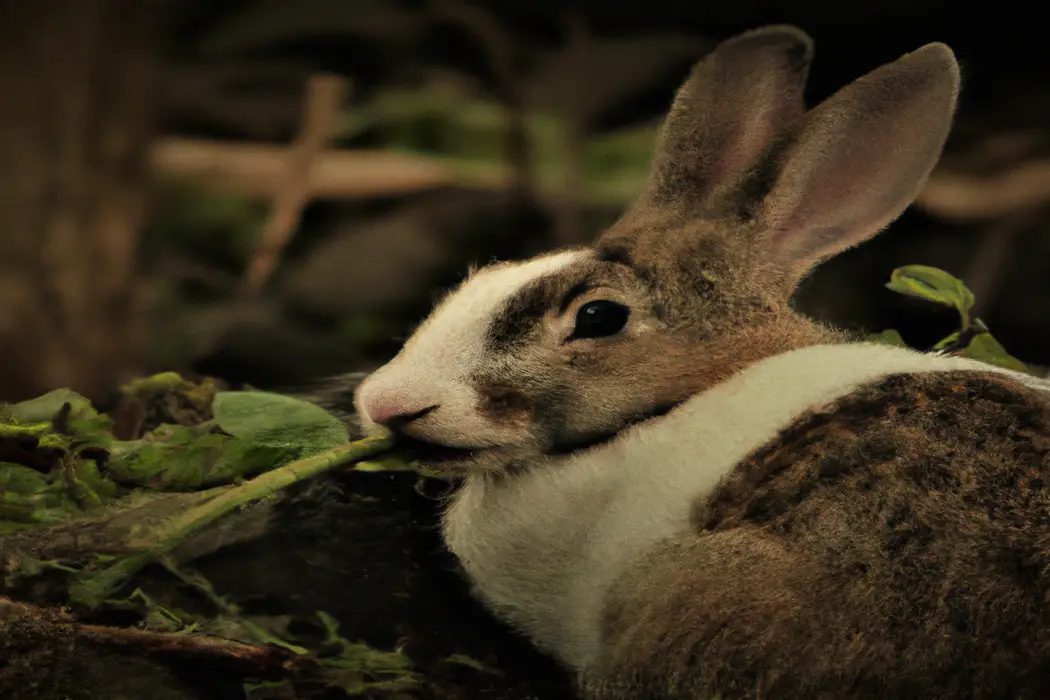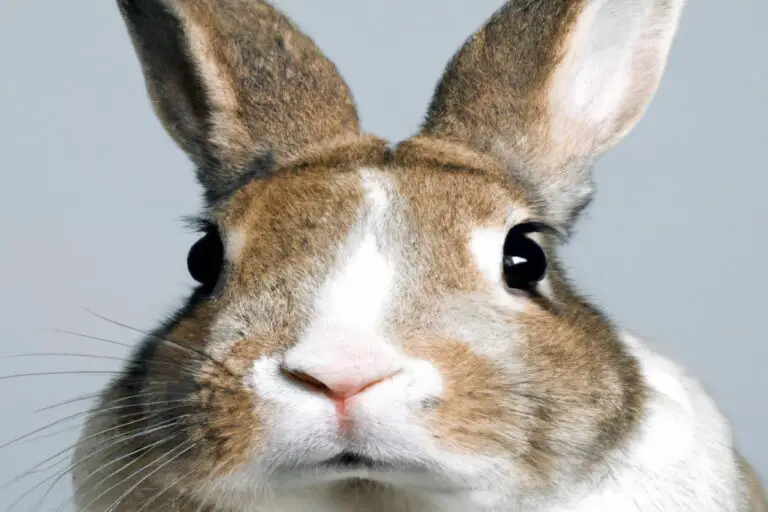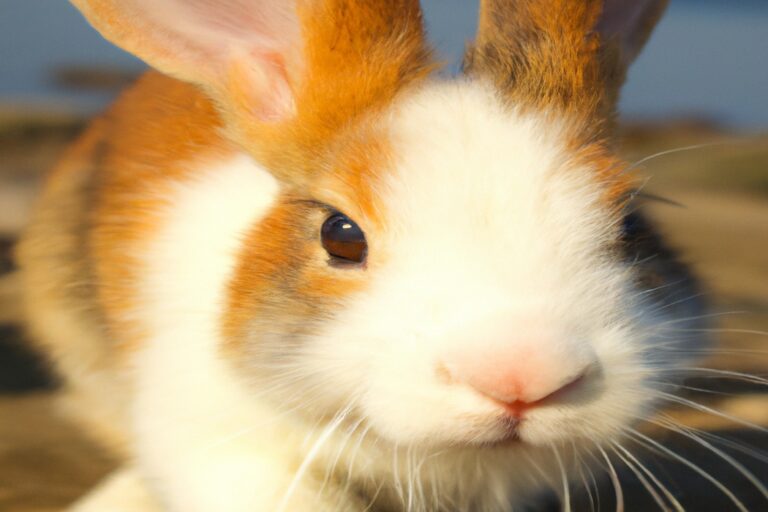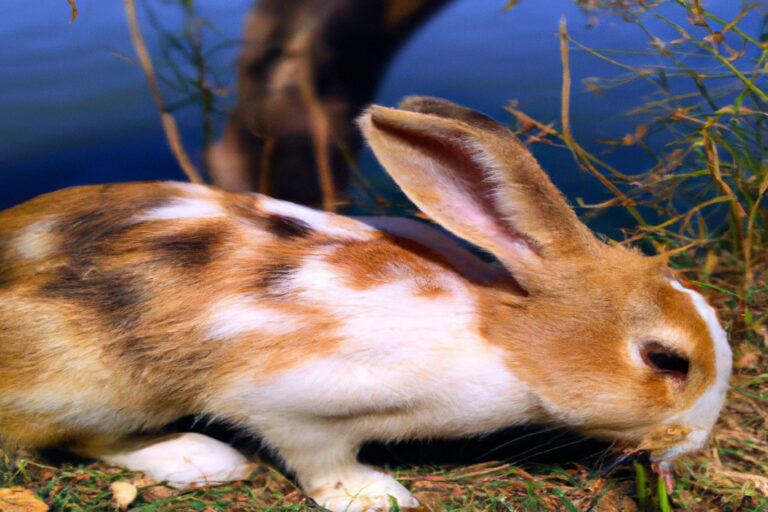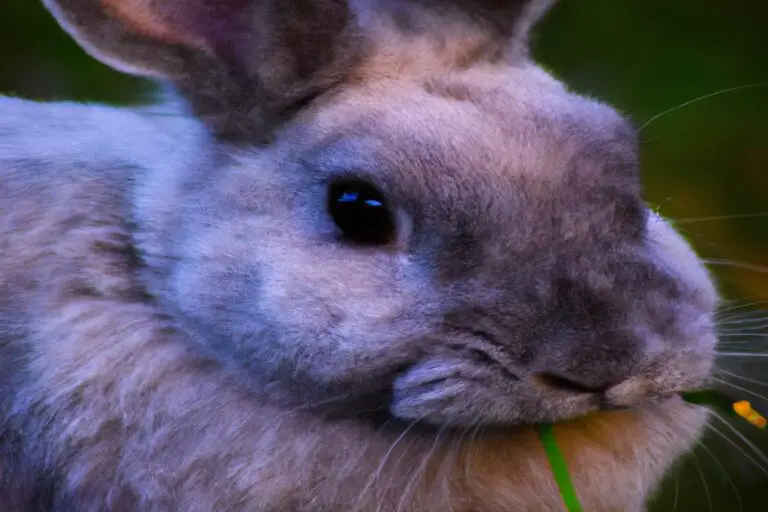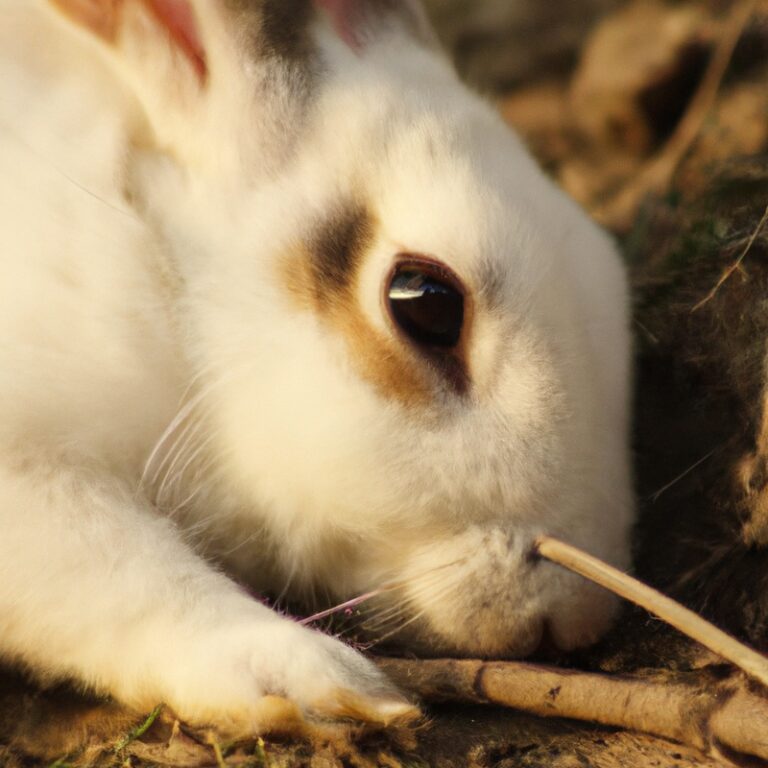Can Rabbits Have Broccoli Stems? A healthy choice for your furry friend
Key Takeaways:
- Rabbits can safely eat broccoli stems in moderation.
- Broccoli stems provide a good source of fiber for rabbits.
- It is important to wash broccoli stems thoroughly before feeding them to rabbits.
- Introduce broccoli stems gradually into a rabbit’s diet to avoid any digestive issues.
Wondering if your furry little friend can munch on some broccoli stems?
Well, you’ve come to the right place! In this article, we’ll explore the topic of whether rabbits can have broccoli stems as part of their diet.
As an expert in rabbit nutrition, I’ll provide you with all the information you need to know about the nutritional value of broccoli stems for rabbits, the potential health benefits they offer, and any risks or precautions you should be aware of.
So, let’s hop right in and find out if broccoli stems are a safe and tasty treat for your bunny companion!
| Question | Answer |
|---|---|
| Can rabbits have broccoli stems? | Yes, rabbits can eat broccoli stems. |
| Benefits of feeding rabbits broccoli stems |
|
| Precautions when feeding broccoli stems to rabbits |
|
| Other vegetables suitable for rabbits |
|
Can rabbits eat broccoli stems?
Yes, rabbits can eat broccoli stems as part of their diet.
Nutritional value of broccoli stems for rabbits
Broccoli stems are a nutritious addition to a rabbit’s diet. They are high in fiber, which helps maintain a healthy digestive system.
They also contain vitamins A, C, and K, which support overall health and immunity.
Additionally, broccoli stems provide minerals like potassium and manganese. Remember to introduce new foods gradually and in moderation, as rabbits may have sensitive stomachs.
It’s important to wash the stems thoroughly to remove any pesticides or dirt before feeding them to your rabbit.
Overall, broccoli stems can be a beneficial and tasty treat for your furry friend!
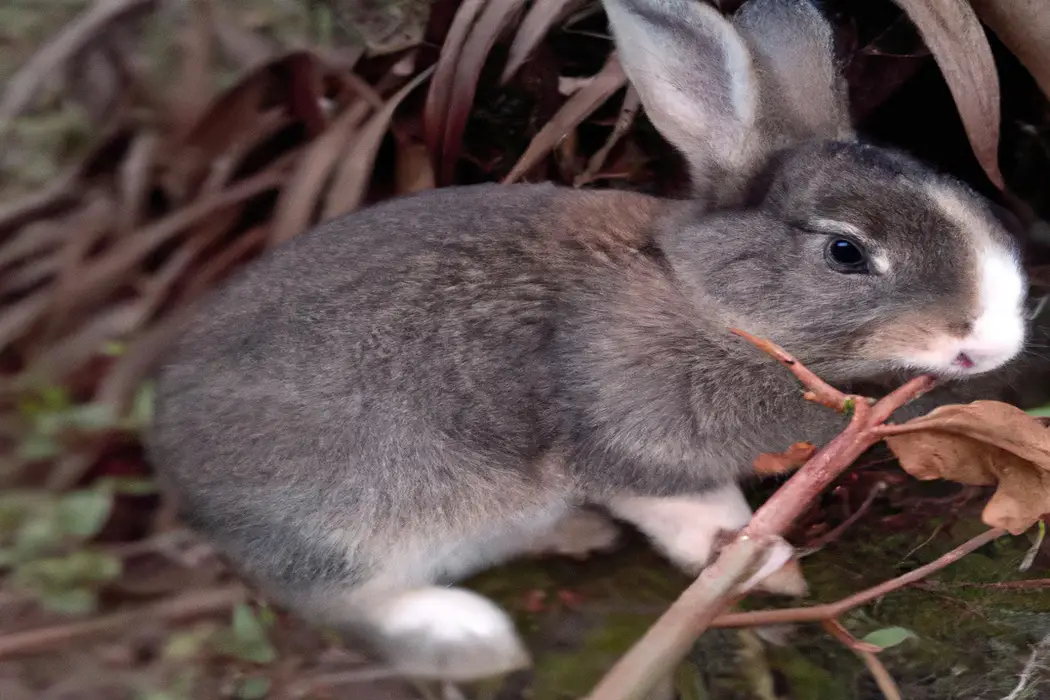
Potential health benefits of feeding rabbits broccoli stems
Rabbits can benefit from eating broccoli stems. They are rich in fiber, which aids in digestion and helps prevent gastrointestinal issues.
The high water content in broccoli stems promotes hydration.
Additionally, broccoli stems contain essential vitamins and minerals like Vitamin C, Vitamin K, and calcium, which contribute to a rabbit’s overall health and immune system. However, moderation is key, as excessive consumption of broccoli stems can cause gas and bloating in rabbits.
Always introduce new foods gradually and monitor your rabbit’s response.
Possible risks and precautions when feeding rabbits broccoli stems
Feeding rabbits broccoli stems may come with some possible risks and precautions.
The main risk is the potential for gastrointestinal upset, as broccoli stems can be difficult for rabbits to digest.
To avoid this, it’s important to introduce broccoli stems gradually into their diet and monitor their response.
Additionally, broccoli stems should always be served raw and fresh, as cooking can diminish their nutritional value and make them harder to digest.
Remember to remove any leaves or florets, as they can pose a choking hazard.
As with any new food, observe your rabbit closely for any adverse reactions and consult with a veterinarian if you have any concerns.

Other vegetables rabbits can eat
Rabbits can also eat a variety of other vegetables, such as lettuce, spinach, carrots, and bell peppers.
A variety of vegetables suitable for rabbits’ diet
Rabbits can enjoy a diverse range of vegetables as part of their diet.
Some suitable options include leafy greens like lettuce, spinach, and kale.
Other safe choices are carrot tops, celery leaves, and bell peppers.
Remember to introduce new vegetables gradually to avoid any digestive issues.
Wash the vegetables thoroughly and remove any stems, seeds, or pits that can be harmful to rabbits.
Offering a variety of vegetables helps provide essential nutrients and keeps your furry friend happy and healthy.
Guidelines for introducing new vegetables to a rabbit’s diet
When introducing new vegetables to a rabbit’s diet, it’s important to do so gradually and observe their reaction. Start by offering a small amount of the new vegetable alongside their regular food.
Monitor for any signs of digestive upset or adverse reactions.
If your rabbit tolerates the new vegetable well, you can gradually increase the amount over time. However, it’s crucial to introduce one new vegetable at a time to identify any potential allergies or sensitivities.
Some safe vegetables for rabbits include leafy greens, like spinach and kale, and herbs like parsley and basil.
Feeding tips for rabbits
Feeding tips for rabbits: Consider portion sizes, prep vegetables properly, and balance their diet with other foods.
Proper portion sizes for rabbits
Proper portion sizes for rabbits are based on their size and weight.
On average, a healthy adult rabbit should be fed about ½ to 1 cup of fresh vegetables per day.
This can include leafy greens like spinach, kale, or romaine lettuce.
It is important to introduce new foods gradually and observe any adverse reactions.
Additionally, rabbits require unlimited access to fresh Timothy hay for proper digestion.
Regular monitoring of your rabbit’s weight and adjusting portion sizes accordingly is key.
Remember to always consult with a veterinarian for personalized feeding recommendations.
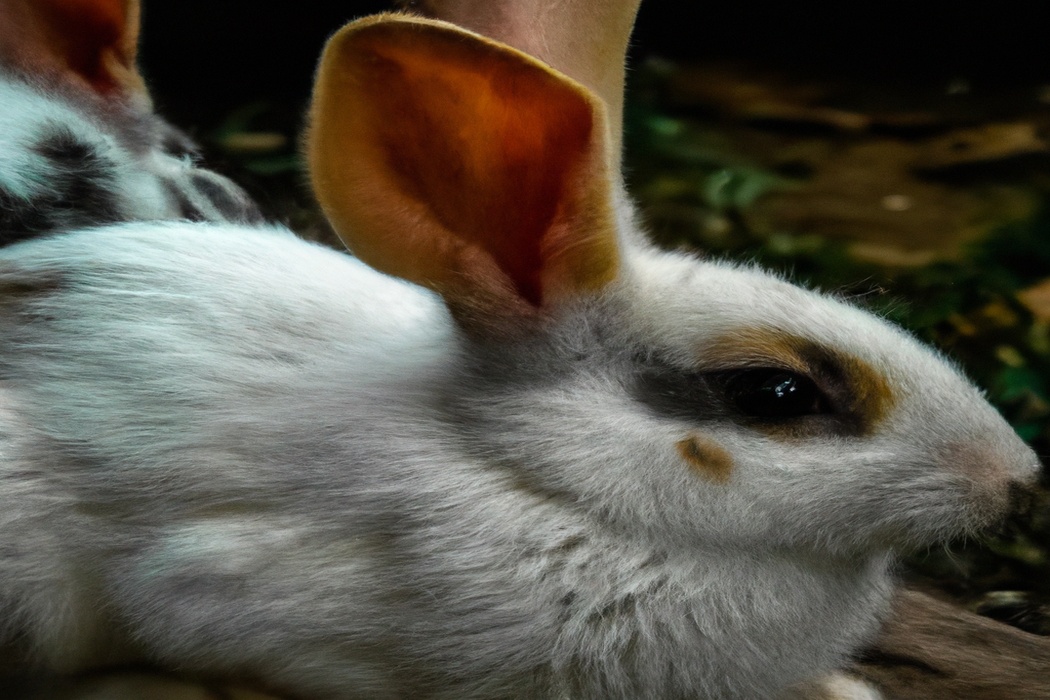
How to properly prepare vegetables for rabbits
To properly prepare vegetables for rabbits, start by thoroughly washing them to remove any dirt or chemicals. Next, chop the vegetables into small, rabbit-sized pieces to make them easier for your furry friend to eat and digest.
Remove any parts that may be harmful, such as seeds or pits.
Introduce new vegetables gradually to avoid digestive issues. Lastly, always prioritize fresh and high-quality vegetables for your rabbit’s health.
Balancing a rabbit’s diet with other foods
To balance a rabbit’s diet, it’s important to incorporate a variety of foods.
Offer a mix of fresh hay, such as timothy or orchard grass, which should make up the majority of their diet.
In addition, provide fresh vegetables like leafy greens (excluding iceberg lettuce) and herbs.
You can also introduce small amounts of fruits as treats.
Avoid feeding your rabbit foods high in sugar, salt, or fat, as well as anything toxic to rabbits, like chocolate or onions.
Always introduce new foods gradually to prevent digestive issues.
Remember, water should also be available at all times.
Frequently Asked Questions
Can rabbits eat broccoli florets?
Yes, rabbits can eat broccoli florets. Broccoli is safe for rabbits to eat and can be a healthy addition to their diet.
However, it should be fed in moderation as part of a balanced diet.
Introduce broccoli slowly to avoid any digestive issues, and always wash it thoroughly before offering it to your furry friend. Remember to remove any leaves or stems, as they can be harder for rabbits to digest.
How often can I feed rabbits broccoli stems?
You can feed rabbits broccoli stems as an occasional treat. However, it should not make up a significant portion of their diet.
Rabbits have sensitive digestive systems, and broccoli stems can be difficult for them to digest.
Too much broccoli stems can lead to digestive issues like gas or diarrhea. It is essential to provide a balanced diet for rabbits that includes primarily hay, fresh vegetables, and limited amounts of fruit.
Variety is key, so offering a mix of different vegetables is recommended.
What are the signs of broccoli stem intolerance in rabbits?
Signs of broccoli stem intolerance in rabbits include:
- Diarrhea or loose stools
- Upset stomach, including gas or bloating
- Decreased appetite or refusal to eat broccoli stems
- Abdominal discomfort or pain
- Nausea or vomiting
If your rabbit exhibits any of these signs after consuming broccoli stems, it may be best to avoid giving them to your furry friend in the future and consult with a veterinarian for further guidance.
Can rabbits eat other parts of the broccoli plant?
Yes, rabbits can eat other parts of the broccoli plant.
They can enjoy the leaves, stems, and florets of broccoli.
However, it is important to introduce new foods gradually and monitor their digestion.
Start with small portions to see how your rabbit reacts, and if there are no negative symptoms like diarrhea or gas, you can continue to incorporate broccoli into their diet.
Remember, moderation is key, and it’s always a good idea to consult with a veterinarian for specific dietary recommendations for your rabbit.
Final Verdict
Rabbits can safely consume broccoli stems as part of their balanced diet. These sturdy and fibrous stems are rich in essential nutrients such as fiber, vitamins, and minerals that are beneficial for a rabbit’s overall health.
However, it’s important to introduce broccoli stems gradually and in moderation to avoid digestive upset.
Always ensure that the broccoli stems are fresh, washed thoroughly, and properly prepared before feeding them to your rabbit. Additionally, it’s crucial to diversify a rabbit’s diet by incorporating other suitable vegetables and foods to provide a well-rounded nutrition.
By following these guidelines, you can safely offer your furry friend the nutritional benefits of broccoli stems while keeping them healthy and happy.

